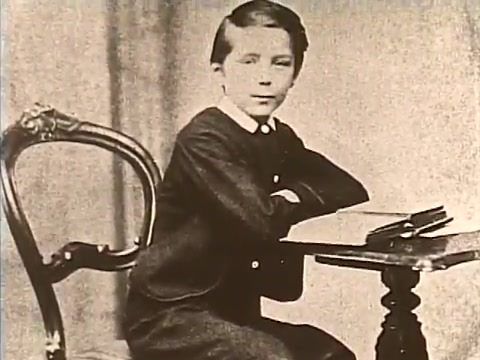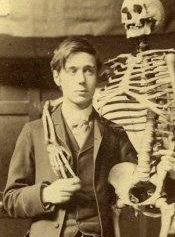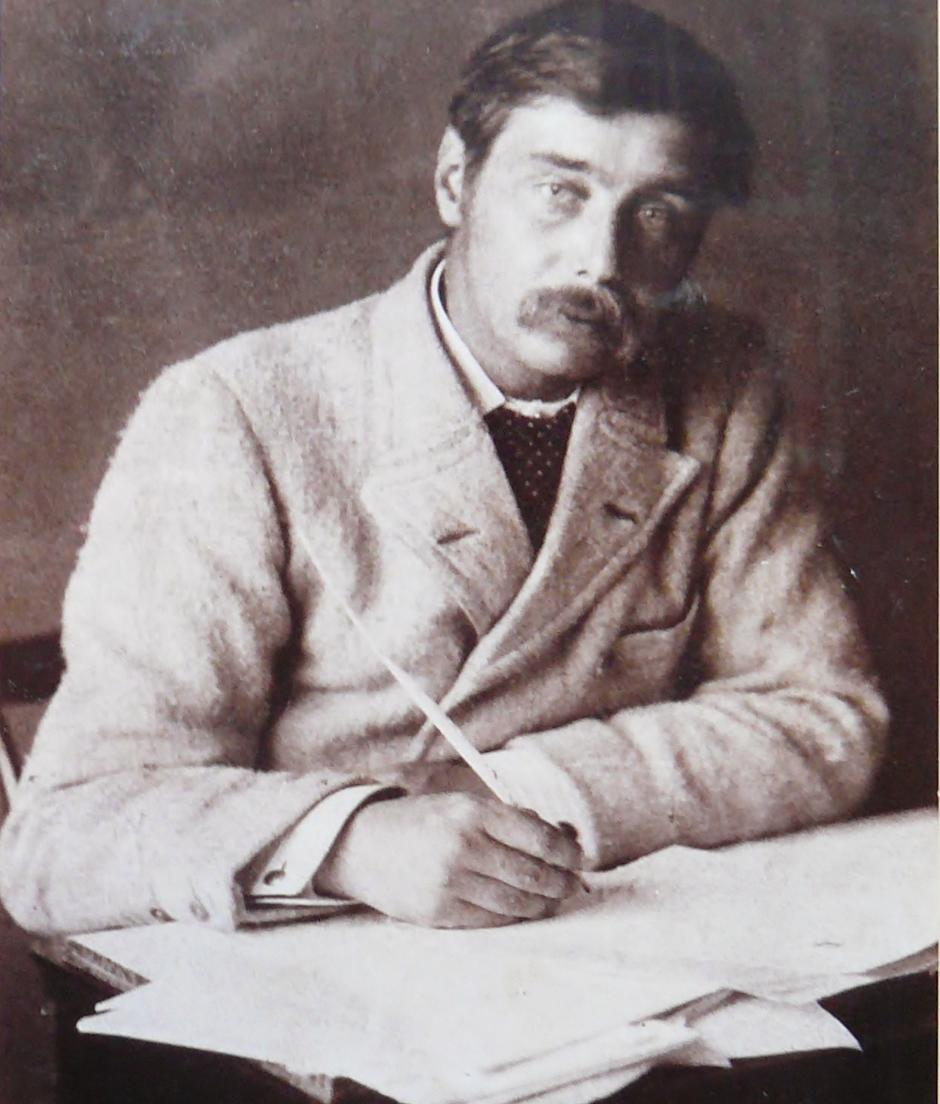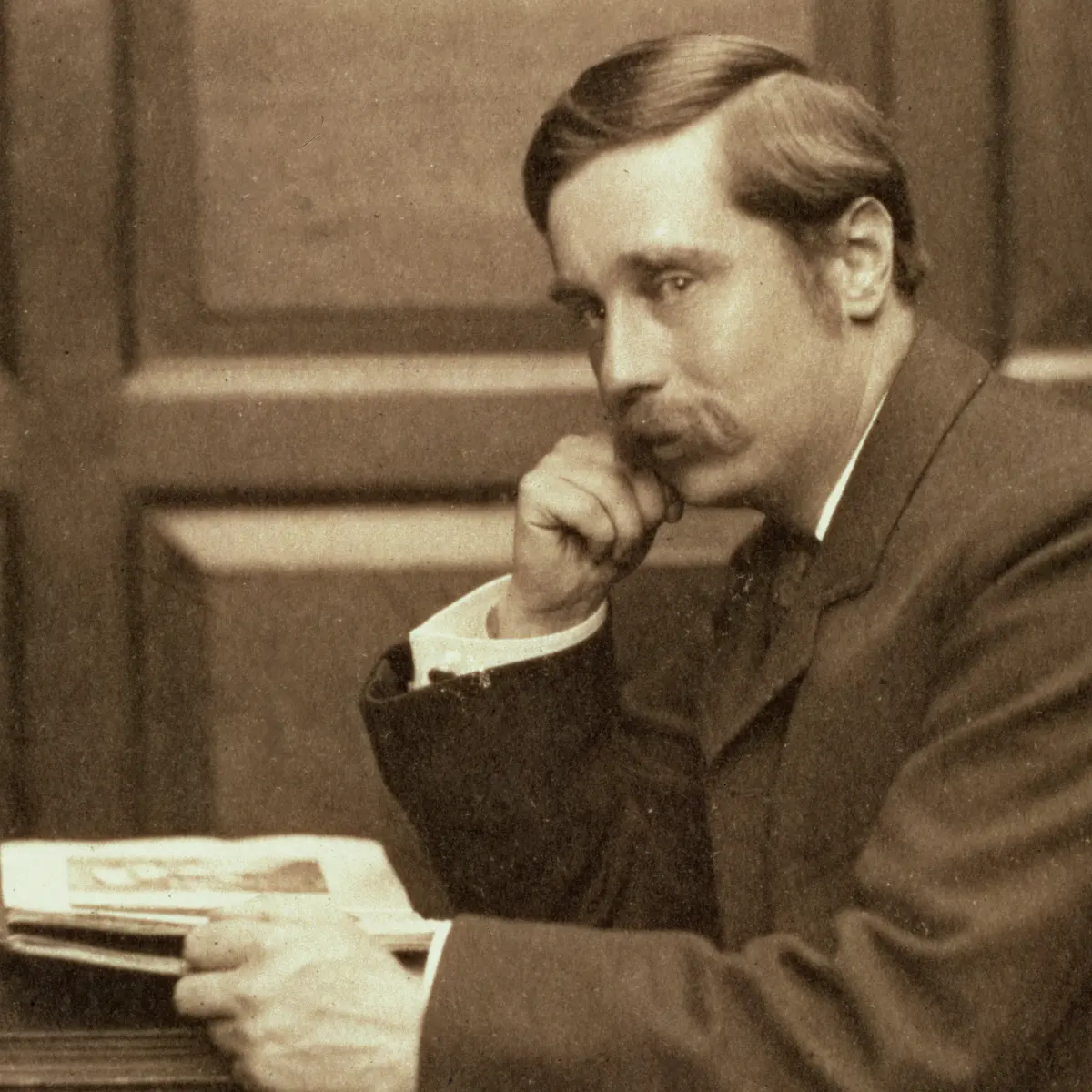H.G. Wells: A Futuristic Writer Of Modern England
Blogs Home
- 13 Sep 2022
.png)
Introduction
September marks the birth of a great figure in English Literature, H.G Wells. Herbert George Wells was a prolific English writer, novelist, journalist, sociologist as well as a historian. Born on September 21st, 1866 in Bromley, Kent, England, he has a number of fictional and non-fictional works to his name. He died on 13th August 1946 in London at the age of 79 leaving behind a legacy of a multitude of fictional works including more than fifty novels and dozens of short stories. His non-fictional texts include works of social commentary, popular science, history, politics, satire, biography and autobiography. He is best remembered for his famous science fiction novels and also his uncanny predictions about the future. He pioneered the science fiction genre and authored more than 100 books during his career spanning over 60 years. His legacy as a writer as well as an activist is celebrated by remembering his works and honouring his achievements in the field of literature and analysing how his theories affected the socio-political culture of the modern literary scene. A study of his early life facilitates an in-depth comprehension of the nature of his works, and how it affected his literature. A further study of his works facilitates an easy understanding of his motive and intention behind producing such works which are futuristic, reforming and revolutionary in nature.
Early Life
Wells belonged to a very humble and poor household. His origins were lower middle class. He had three elder siblings. His father, Joseph Wells, was a semi-professional cricket player and his mother, Sarah Neil, was an intermittent housekeeper. They worked as domestic servants but later resorted to shopkeeping by purchasing a hardware store for their small inheritance because of being under the constant threat of poverty. After suffering from an accident at the age of 7, Wells became bedridden and developed a fondness for reading. He became a voracious reader and read everything from Charles Dickens to Washington Irving. His literary horizons expanded when his mother started working as a housekeeper at a larger estate, and it is there that he read authors such as Voltaire.
Wells eventually studied at Thomas Morley’s academy in Bromley but was forced to drop out at the age of 14 due to his father’s injury which left him incapable of playing and paying for his school. Wells thus started working as a draper where he gained experience and also inspiration which is reflected in his works like Kipps (1905) and A Bicycling Idyll (1896). In 1883 he rebelled against his fate and started teaching at a private school.
In 1884 he won a scholarship to the Normal School of Science in South Kensington where he developed a massive interest in science. Here he studied Biology and Darwinism under the expert Thomas Henry Huxley. He however couldn’t complete his degree and lost his scholarship in 1887, thus returning to his profession as a teacher in private schools. He finally got a degree in science from the University of London in 1890. He got married in 1891 to his cousin Isabel, the daughter of his uncle and aunt with whom he lived and taught at their school. Wells later left his wife of four years for one of his students, Amy Catherine Robbins, and had two sons with her. Wells had other women in his life as well and he had children from them too. Some of these women also became inspirations for his characters.
Wells as a Writer
Wells had been writing for a long time but he published several of his stories in 1895. After 3 years of writing on educational topics, he published his first novel The Time Machine. This is when his career as a writer truly began and started flourishing. He abandoned teaching and a series of scientific fantasies followed. Wells’ involvement with socialism and radicalism had already begun in 1884 and it continued with him for the remainder of his life.
A testimony of the fact that he had a massive impact on his contemporaries and future generations is that he is considered “the father of science fiction”, a title which he shared with French Sci-fi writer Jules Verne. Making his mark as a key figure of modernism, he is among the most influential intellectuals of the 20th-century literary scene and his work advocates his modern temperament which influenced the masses and gave birth to a social revolution.
Considered the chief literary spokesman of the liberal optimism which was prevalent before World War 1, Wells excelled in capturing the rebellious and adventurous spirit his period witnessed which led man to the verge of breaking entirely free from Victorian thought and culture. Wells worked with a fearless and uncompromising approach in his effort to give rise to a social revolution and bring good to humanity.
He believed that man could only progress through adaptation, education and knowledge. His works are evidence of his socialist temperament and are the main source of his concept of social evolution. They call for a revolt against traditional and conventional norms of society and clearly show him to be an advocate of absolute freedom. In fact, Wells was so committed and dedicated to his reformist militancy that he did not mind completely changing the theme and content of his novels in order to present a severe critique of western society and its values. The evolution of Wells as an author is crystal clear in his works and a comparison of his early and later works throws immense light on the factors that acted as a catalyst in this evolution.
Wells began his writing career with fantastical novels such as The Time Machine (1895), The Wonderful Visit (1895), The Island of Doctor Moreau (1896), The War of the Worlds (1898) etc. and established himself as a master of science fiction. He even acquired a prophetic status due to foreseeing certain mechanical and military developments which were later seen manifested in scientific fields of knowledge. In his novel The Sleeper Awakes (1899), his concerned comment on a progressive future is truly thought-provoking. He claims “We were making the future, and hardly any of us troubled to think what future we were making”. The genius of his imagination moulded along with his passionate concern for man and society is what made him give birth to such fantasy in his science fiction.
As the social reformer in Wells grew, he shifted his focus towards delving into the lives of the lower middle class and presenting before people their problems, issues and concerns. Anticipations (1901), Mankind in the Making (1903) and A Modern Utopia (1905) are some of his works which carved his image, in the British minds, of a staunch preacher of social progress. Here, Wells discusses the lost aspirations and the unfulfilled dreams of the ordinary man and shows much sympathy for them in the guise of satire and humour. In The Open Conspiracy: What are we to do with our lives? (1928) he defines man with typical dark imagery laying bare his flaws and shortcoming. “Man is an imperfect animal and never quite trustworthy in the dark”.
In his later works, Wells transformed the idea of a novelist in his psyche and instead of seeing it as a fictional creation, he started visualising it as a tool of social and political reform. He even claimed “I would rather be called a journalist than an artist”, highlighting his motive behind documentation. “In Mr. Britling sees it through” (1916) he draws an accurate picture of the Britishers during World War 1.
Post World War I, we see the complete metamorphosis of Wells as he propagated adaptation techniques and skills through works of popular education such as The Outline of History (1920), The Science of Life (1931), The Work, Wealth, and Happiness of Mankind (1932) etc. In The Outline of History (1928), Wells seems very particular about his notion of human history. He asserts it has become “more and more a race between education and catastrophe”.
With the outbreak of World War 2, Wells displays pessimism for the first time in his work ‘Mind at The End of its Tether’ (1945) by depicting a bleak and hopeless vision of a world where nature has abandoned mankind and is annihilating it. It is only here that we see a glimpse of negativity in the positive, optimistic, humour-rich and reformist psyche of HG Wells. He depicts his perception of war as a source of pure destruction and annihilation in ‘Things to Come’ (1936). He remarks “If we don’t end war, war will end us”.
Conclusion
Wells revolutionised the literary culture by introducing the genre of science fiction and infusing it with realistic backdrops creating a form of literature which invoked real emotions with fantastical elements. He also brought a huge transformation in the socio-political structure of his period due to his unapologetic approach and visionary temperament. He is still cherished as an advocate of liberalism, social reforms and women’s rights in a period when these ideas were looked at with scrutiny. His texts have never run out of print and surely this testifies to the evergreen charm they hold for his reader. His works stand as a legacy of his calibre and are a fortune for any avid reader of quality literature who intends to please his intellect with realistic issues or treat his heart to science fiction fantasy.
Sarmad Shakeel
Sarmad is a Post Graduate of English Lit. from Aligarh Muslim University. He is fluent in English, Hindi, Urdu and Arabic. He has previously worked as a teacher and is currently looking forward to exploring his writing potential in the best possible way.
Sources
www.thoughtco.com/hg-wells-biography-4158307
www.britannica.com/biography/H-G-Wells
HG Wells: prophet of free love | HG Wells
https://campuspress.yale.edu/modernismlab/h-g-wells/
The Works of H.G. Wells and His Role in Shaping Science Fiction










